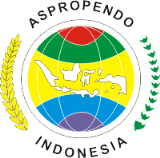The Policy Role of Bank Syariah Indonesia for MSMEs Sector in Community Economic Empowerment
Abstract
The people's economy can be improved through the micro business sector. The issue of the role of Bank Syariah Indonesia (BSI) as a competent Islamic bank is a new hope for these business actors. Unfortunately, previous studies have not disclosed in depth the programs and policies of BSI after the merger. This study aims to determine the policy of Islamic banking toward the micro-business sector to empower the community's economy. The study was conducted on Bank Syariah Mandiri (BSM), which merged with two other large Islamic banks, Bank Rakyat Indonesia Syariah (BRI Syariah) and Bank Negara Indonesia Syariah (BNI Syariah), and became BSI. The research design used a qualitative approach with data collection techniques in interviews, observation, and documentation. BSI is a bank that collects and distributes funds to the public based on sharia principles. The findings show that BSI maintained its reputation as a competent Islamic bank in community empowerment efforts. This is evidenced by the inclusion of BSI in the Forbes list of The World's Best Banks 2021 because it has met the criteria for trust, terms and conditions, customer services, digital services, and financial advice. Although it has merged with two other Islamic banks, BSM continues to use the same system as before, except for some adjustments related to product policies regarding costs, benefits, and margin provisions by applicable regulations. Community empowerment through Micro Business products refers to Law Number 21 of 2008 concerning Islamic Banking. In its development, to support the community's economy, BSI carries out a sustainable finance agendavillage economic programs, food security, sociopreneur scholarships, and siding with MSMEs.
Keywords: Bank Syariah Indonesia; policy; MSMEsFull Text:
PDFReferences
Abdullah, Z., & Susamto, A. A. (2019). The role of investment-based Islamic crowdfunding for halal MSMEs: Evidence from Indonesia. Al-Iqtishad: Jurnal Ilmu Ekonomi Syariah, 11(2), 289–302. https://doi.org/10.15408/aiq.v11i2.13623
Abedifar, P., Molyneux, P., & Tarazi, A. (2013). Risk in Islamic banking. Review of Finance, 17(6), 2035–2096. https://doi.org/10.1093/rof/rfs041
Adeyemi, A. A., Al-Jaafreh, A. S., & Osman, M. A. (2015). Islamic microfinance and MSMEs development in Saudi Arabia. International Journal of Education and Research, 3(9), 59–72. https://www.researchgate.net/profile/Abideen-Adewale/publication/290429954
Affandi, A., Sobarna, A., Erlangga, H., Onny, S. A., Purwanto, A., & Amin, E. A. (2020). Optimization of MSMEs empowerment in facing competition in the global market during the COVID-19 pandemic time. Systematic Reviews in Pharmacy, 11(11), 1506–1515. https://www.sysrevpharm.org/articles/optimization-of-msmes-empowerment-in-facing-competition-in-the-global-market-during-the-covid19-pandemic-time.pdf
Alharbi, A. (2015). Development of the Islamic banking system. Journal of Islamic Banking and Finance, 3(1), 12–25. https://doi.org/10.15640/jibf.v3n1a2
Basrowi, & Utami, P. (2020). Building strategic planning models based on digital technology in the sharia Capital Market ?. Journal of Advanced Research in Law and Economics, 11(3), 747–754. https://doi.org/https://doi.org/10.14505/jarle.v11.3(49).06
Chachi, A. (2006). Munawar Iqbal and Philip Molyneux thirty years oflslomic banking: History, performance and prospects. Journal of King Abdulaziz University-Islamic Economics, 19(1), 39–41. https://doi.org/10.4197/islec.19-1.3
Chong, B. S., & Liu, M. H. (2009). Islamic banking: Interest-free or interest-based? Pacific Basin Finance Journal, 17(1), 125–144. https://doi.org/10.1016/j.pacfin.2007.12.003
Disli, M., Aysan, A. F., & Abdelsalam, O. (2022). Favoring the small and the plenty: Islamic banking for MSMEs. Economic Systems, 46(4), 1–17. https://doi.org/10.1016/j.ecosys.2022.101051
Gerrard, P., & Barton, C. J. (1997). Islamic banking: A study in Singapore. International Journal of Bank Marketing, 15(6), 204–216. https://doi.org/10.1108/02652329710184433
Gunardi, A., Herwany, A., Febrian, E., & Anwar, M. (2021). Research on Islamic corporate social responsibility and Islamic bank disclosures. Journal of Sustainable Finance and Investment, 12(4), 1308-1329. https://doi.org/10.1080/20430795.2021.1874211
Habiburahman., Alam, I. A., Dunan, H., & Haninun. (2019). MSMEs empowerment and development strategy model. Journal of Advanced Research in Dynamical and Control Systems, 11(12), 34–39. https://doi.org/10.5373/JARDCS/V11I12/20193209
Hejase, H. J. (2020). The Role of empowerment to foment better productivity. Journal of Economics and Economic Education Research, 21(1), 1-2. https://www.dlsweb.rmit.edu.au/Toolbox/leadership/toolbox/ip/ip_c01.html
Hudaefi, F. A., & Badeges, A. M. (2022). Maqāṣid Al-Sharī‘ah on Islamic banking performance in Indonesia: A knowledge discovery via text mining. Journal of Islamic Marketing, 13(10), 2069-2089. https://doi.org/10.1108/JIMA-03-2020-0081
Imam, P., & Kpodar, K. (2016). Islamic banking: Good for growth? Economic Modelling, 59, 387–401. https://doi.org/10.1016/j.econmod.2016.08.004
Imran, M., Salisu, I., Aslam, H. D., Iqbal, J., & Hameed, I. (2019). Resource and information access for SME sustainability in the era of IR 4.0: The mediating and moderating roles of innovation capability and management commitment. Processes, 7(4), 1–25. https://doi.org/10.3390/pr7040211
Izzati, R. Q., & Nurhasanah, N. (2021). Analysis of financing prospects of Mandiri Syariah Bank (BSM) in Pemalang. Jambura Equilibrium Journal, 3(1), 13-18. https://doi.org/10.37479/jej.v3i1.10007
Jahja, A. S., Ramalu, S. A. S., & Razimi, M. S. A. (2021). CSR and legitimacy of Indonesian Islamic Banks. Turkish Journal of Computer and Mathematics Education (TURCOMAT), 12(3), 1242–1251. https://doi.org/10.17762/turcomat.v12i3.875
Kamal, M. (2019). Strategy for optimizing the role of MSMEs in government good and services procurement e-marketplace. Advances in Economics, Business and Management Research, 98(ICOT), 48–52. https://doi.org/10.2991/icot-19.2019.11
Kara, M. (2013). Konstribusi pembiayaan perbankan syariah terhadap pengembangan usaha mikro kecil dan menengah (UMKM) di Kota Makassar. Ilmu Syariah dan Hukum, 47(1), 315–322. http://dx.doi.org/10.14421/ajish.2013.47.1.%25p
Kartawinata, B. R., Wijayangka, C., Hanansa, R. D., & Aprilia, S. (2020). Analisis perkembangan usaha mikro, kecil dan menengah (UMKM) sebelum dan sesudah memperoleh pembiayaan dari lembaga keuangan syariah (studi kasus UMKM Kabupaten Bandung). ECo-Buss, 2(2), 22–29. http://jurnal.kdi.or.id/index.php/eb/article/view/108/74
Khan, F. (2010). How Islamic is Islamic banking?. Journal of Economic Behavior and Organization, 76(3), 805–820. https://doi.org/10.1016/j.jebo.2010.09.015
Kusumawardhani, D., Rahayu, A. Y., & Maksum, I. R. (2015). The role of government in MSMEs: The empowerment of MSMEs during the free trade era in Indonesia. Australasian Accounting, Business and Finance Journal, 9(2), 23–42. https://doi.org/10.14453/aabfj.v9i2.3
Marshall, C., & Rossman, G. B. (2014). Designing qualitative research. Sage publications.
Muttaqin, H. M., Kosim, A. M., & Devi, A. (2021). Peranan perbankan syariah dalam mendorong usaha mikro kecil dan menengah di masa pandemi Covid-19. El-Mal: Jurnal Kajian Ekonomi & Bisnis Islam, 2(2), 235–244. https://doi.org/DOI: 1047467/elmal.v2i2.393
Nastiti, N. D., & Kasri, R. A. (2019). The role of banking regulation in the development of Islamic banking financing in Indonesia. International Journal of Islamic and Middle Eastern Finance and Management, 12(5), 643–662. https://doi.org/10.1108/IMEFM-10-2018-0365
Nugroho, L., & Nugraha, E. (2020). The role of Islamic banking and e-commerce for the development of micro, small, and medium entrepreneur businesses. Business, Economics and Management Research Journal, 3(1), 11–24. https://www.researchgate.net/publication/342354819
Nurhavina, D. (2020). Empowerment of digital based MSMES in communities in the new normal era. International Journal of Innovation Review, 1(1), 61–70. https://doi.org/10.52473/ijir.v1i1.14
Pratiwi, A. (2016). Islamic banking contribution in sustainable socio-economic development in Indonesia: An epistemological approach. Humanomics, 32(2), 98–120. https://doi.org/10.1108/H-12-2015-0085
Rodliyah, N., & Ramasari, R. D. (2018). Implementation of syari’ah economic principles on the management of syari’ah mutual fund in Indonesia. Yuridika, 33(2), 316-329. https://doi.org/10.20473/ydk.v33i2.7380
Sabiu, T. T., & Abduh, M. (2021). Impact of Islamic banking inclusion on SME employment growth in Nigeria. Journal of Islamic Monetary Economics and Finance, 7(1), 77–106. https://doi.org/10.21098/jimf.v7i1.1354
Saifurrahman, A., & Kassim, S. (2021). Issues and Challenges Facing Islamic Banks and MSME in Financial Inclusion in Indonesia. IGI Global. https://doi.org/10.4018/978-1-7998-6811-8.ch020
Sommer, C. (2017). Drivers and constraints for adopting sustainability standards in small and medium-sized enterprises (SMEs). The Federal Ministry for Economic Cooperation and Development (BMZ).
Supriani, I., Fianto, B. A., Fauziah, N. N., & Maulayati, R. R. (2021). Revisiting the contribution of Islamic 'banks' financing to economic growth: The Indonesian experience. Shirkah: Journal of Economics and Business, 6(1), 18–37. https://doi.org/10.22515/shirkah.v6i1.383
Syarifuddin, S., Muin, R., & Akramunnas, A. (2021). The potential of sharia fintech in increasing micro small and medium enterprises (MSMES) in the digital era in Indonesia. Jurnal Hukum Ekonomi Syariah, 4(1), 23-36. https://doi.org/10.30595/jhes.v4i1.9768
Syntia, R. B., Sadalia, I., & Budi, M. M. (2018). The influence of the internal environment on the empowerment of MSMEs based on environmental management. KnE Social Sciences, 3(10), 624–634. https://doi.org/10.18502/kss.v3i10.3409
Utami, P., Jasmine, M., & Guzman, J. De. (2020). Innovation of technology-based strategies based on environmental examination organizations in Islamic banking and finance. Asian Journal of Multidisciplinary Studies, 3(1), 117–126. https://www.asianjournal.org/online/index.php/ajms/article/view/264
Wahyuni, R. A. E., & Hartono, D. (2019). Implementation of legal protection by the government in order to empowerment of micro small medium enterprise to realize the justice economy (Research study: The office of cooperative and micro small and medium enterprise Province of Central Java). Diponegoro Law Review, 4(1), 388-396. https://doi.org/10.14710/dilrev.4.1.2019.388-396
Wajdi, D. A. (2008). Understanding the objectives of Islamic banking: A survey of 'stakeholders' perspectives. International Journal of Islamic and Middle Eastern Finance and Management, 1(2), 132–148. https://doi.org/10.1108/17538390810880982
Wijayanti, R., Diyanty, V., & Laela, S. F. (2020). Education strategy misfit, board effectiveness and Indonesian Islamic bank performance. Journal of Islamic Accounting and Business Research, 11(3), 929–944. https://doi.org/10.1108/JIABR-04-2017-0052
Refbacks
- There are currently no refbacks.













